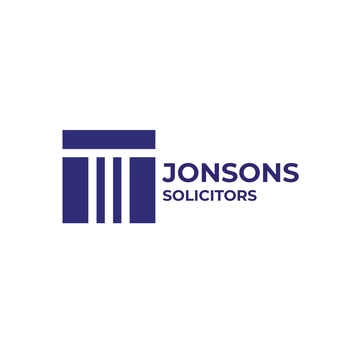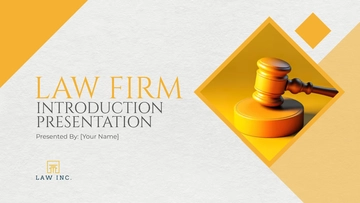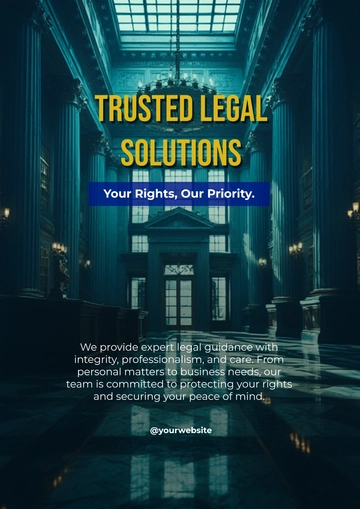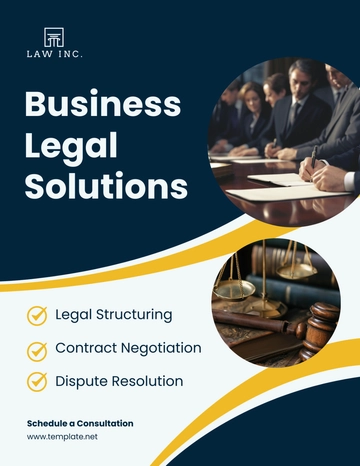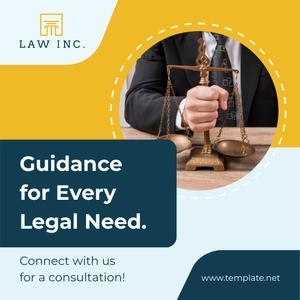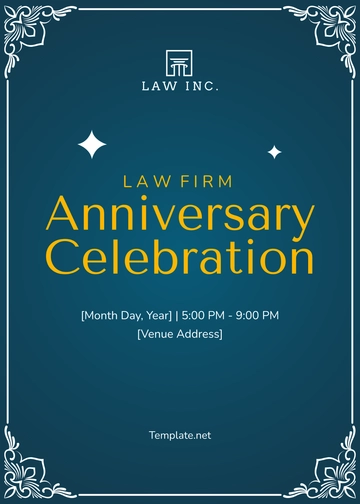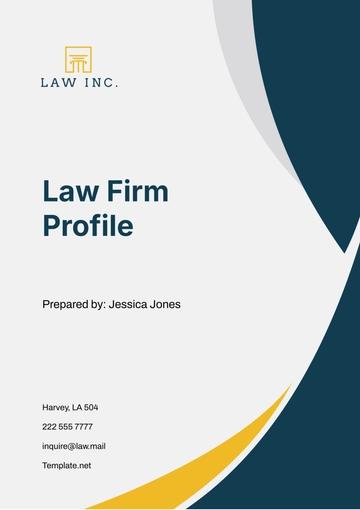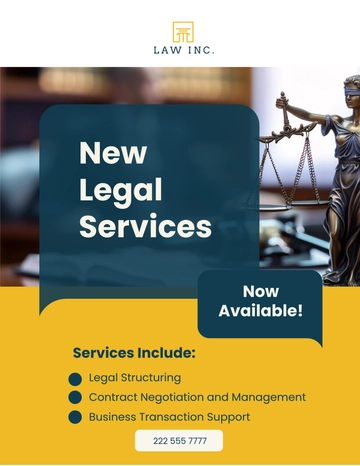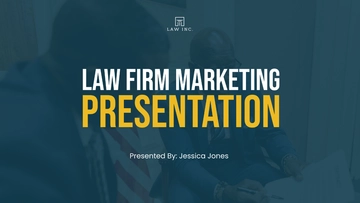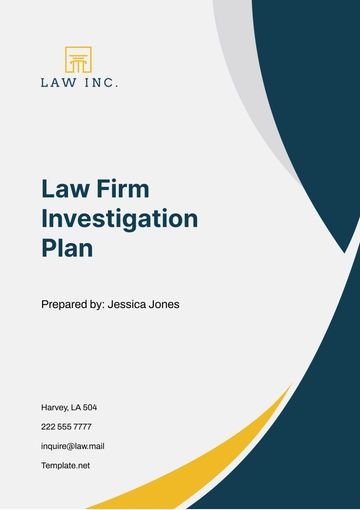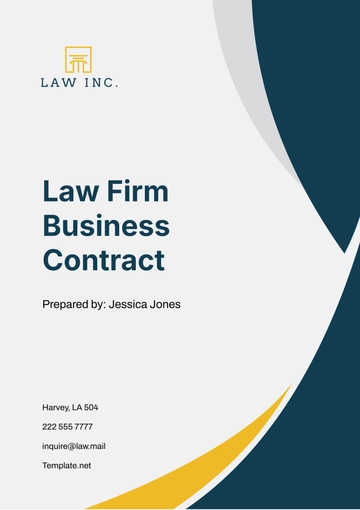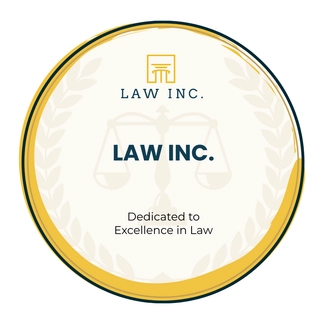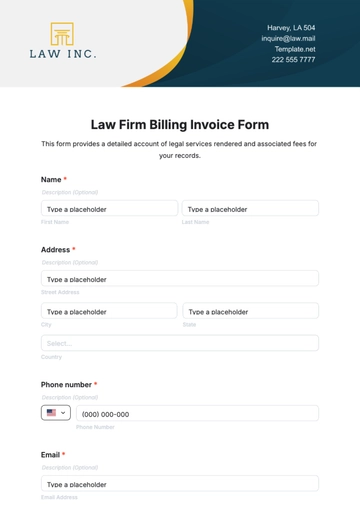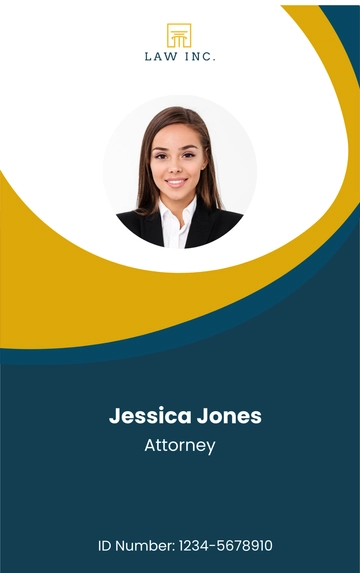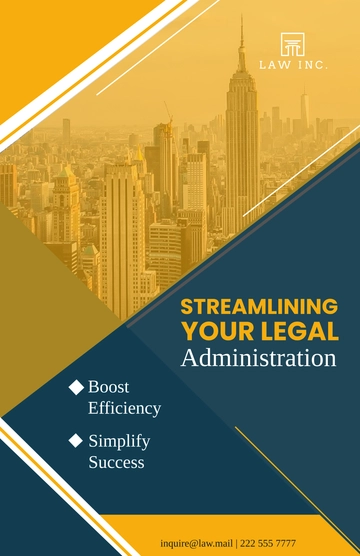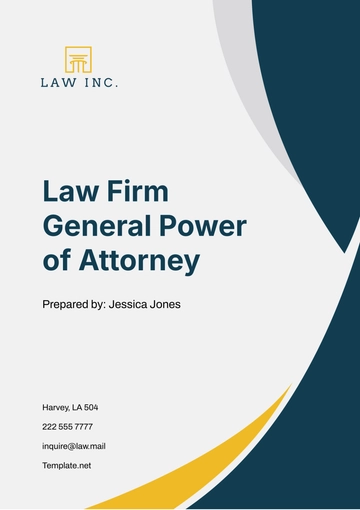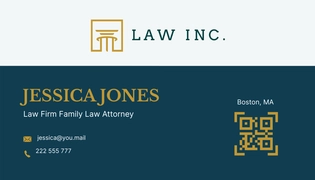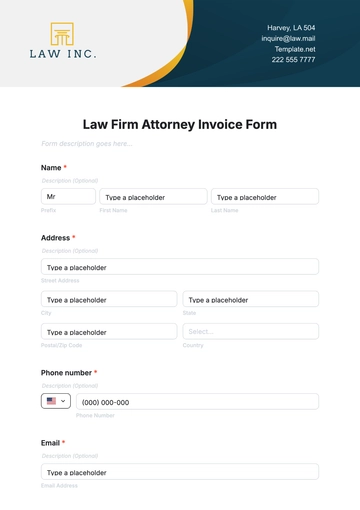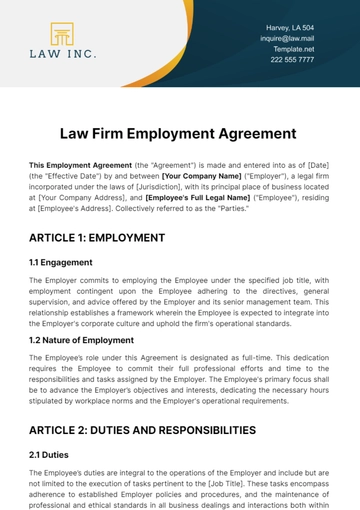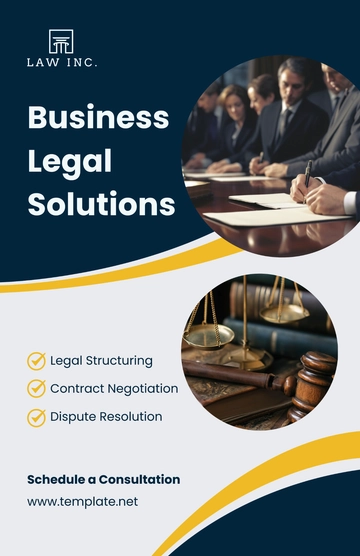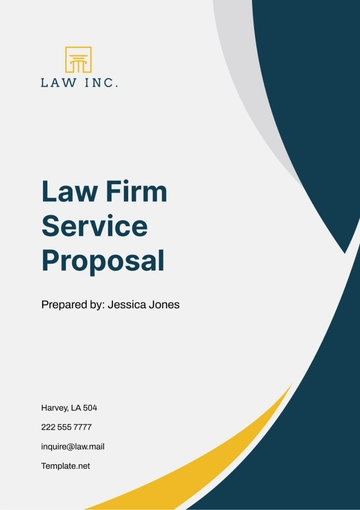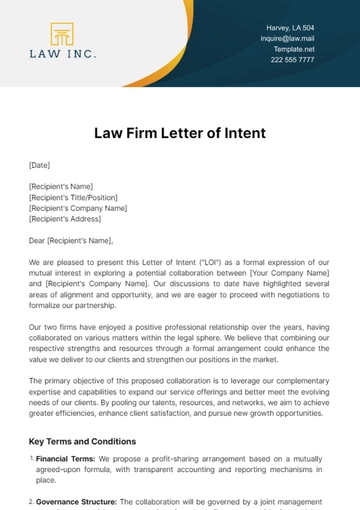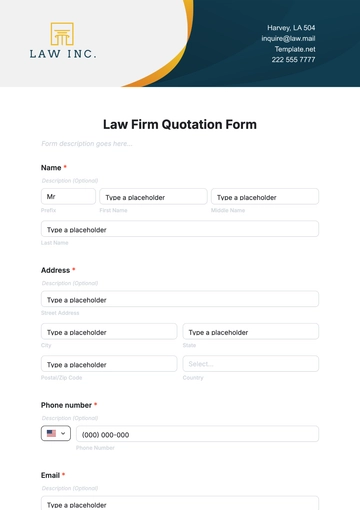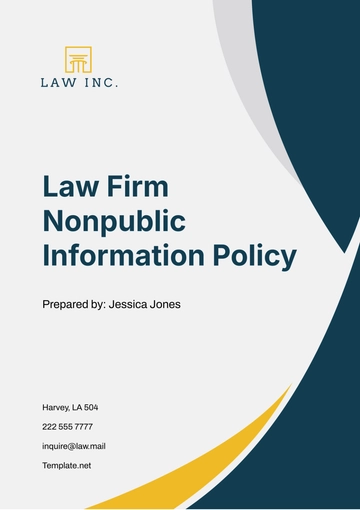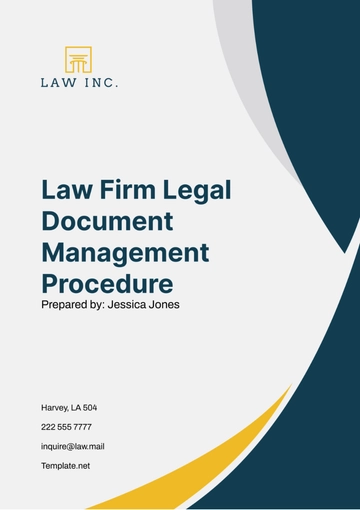Free Law Firm Ethics and Professionalism Strategy
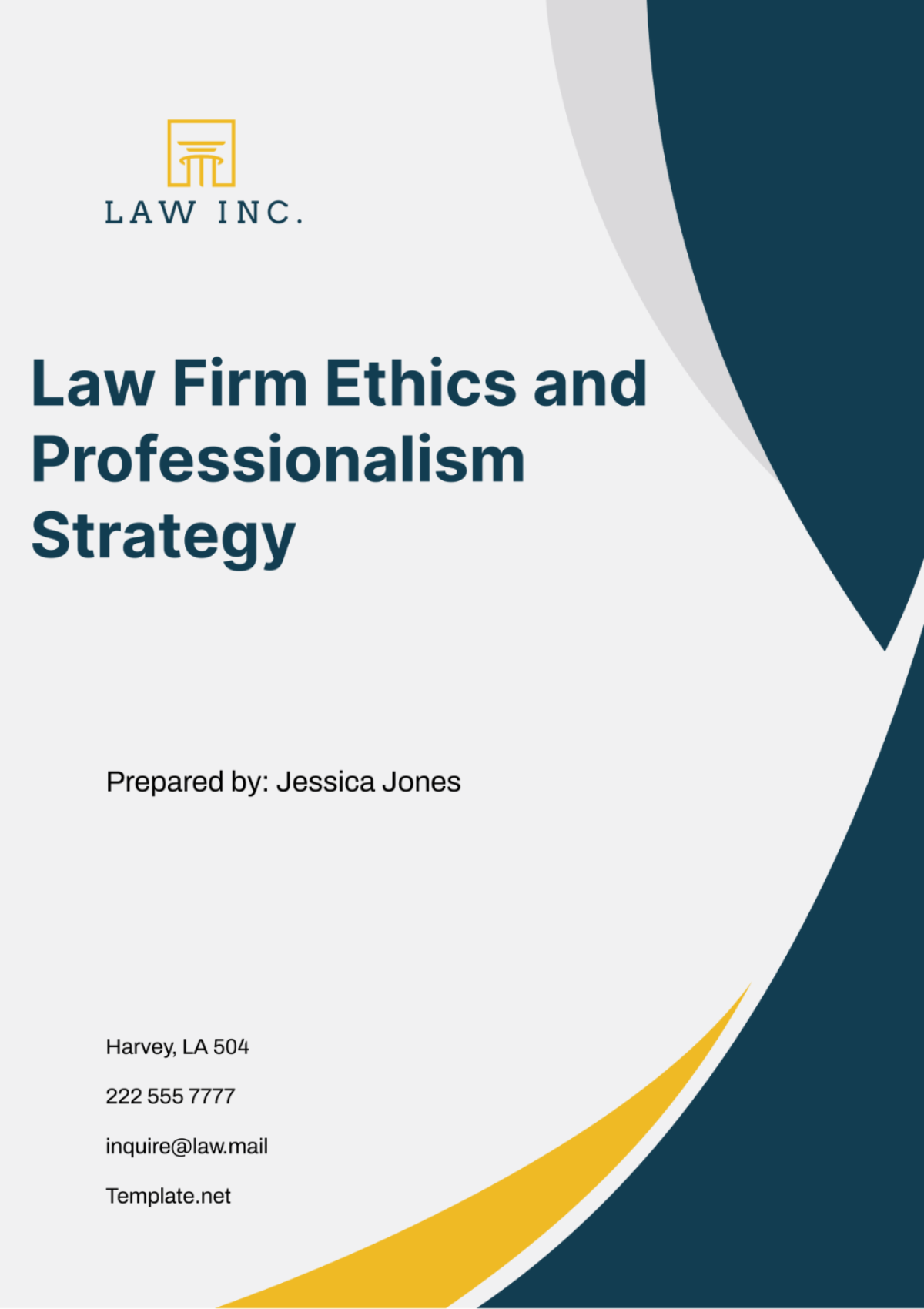
1. Introduction
The Law Firm Ethics and Professionalism Strategy aims to establish a framework that ensure all personnel adhere to the highest standards of ethical conduct and professionalism. This comprehensive plan will detail actionable steps and policies to foster an environment of integrity, respect, and ethical practice, crucial for maintaining trust with clients and the judicial system. Implementation of this strategy will position the firm as a leader in ethical jurisprudence.
2. Objective Overview
At [Your Company Name], our primary goal is to cultivate a firm-wide culture of heightened ethical awareness and professionalism. The objectives set forth in this strategy are designed to quantitatively measure progress and facilitate actionable outcomes:
Reduce ethical violations by 10% annually.
Increase staff awareness of professional standards by conducting quarterly educational sessions.
Achieve a 95% positive feedback rate in client satisfaction surveys regarding transparency and integrity by the end of the fiscal year.
These targeted goals aim to embed ethical decision-making at all operational levels of the firm, thereby ensuring consistent adherence to our high standards.
3. Current Ethical Standards Assessment
A thorough review of the existing ethical standards and practices within [Your Company Name] reveals a variable understanding and adherence across different departments. The assessment highlights several key areas requiring immediate attention and systematic improvement:
Confidentiality
Conflict of Interest
Client Communication
Ethical Standards Assessment Table
Ethical Area | Current Compliance Level | Desired Compliance Level | Gap Analysis |
|---|---|---|---|
Confidentiality | 75% compliant | 100% compliant | Training in data security |
Conflict of Interest | 60% compliant | 100% compliant | Enhanced conflict checks |
Client Communication | 80% compliant | 100% compliant | Regular communication training |
This table serves as the baseline for targeted improvements, focusing on enhancing understanding and adherence to these critical ethical guidelines through comprehensive training and monitoring.
4. Key Ethical Challenges Identification
Identifying and addressing specific ethical challenges is crucial to refining our ethical practices. Here are the key areas identified as requiring immediate action:
Client Confidentiality in Digital Communications: As digital interaction increases, ensuring the confidentiality of sensitive information is paramount.
Conflicts of Interest in Client Representation: Avoiding any situation where the firm's interests might conflict with those of our clients.
Adherence to Billing Practices: Transparent and fair billing is essential for client trust.
Transparency in Client Relations: Clients should always feel fully informed about the status of their legal matters.
Maintaining Professional Decorum: Upholding the highest standards of conduct in all professional interactions.
5. Educational Programs and Workshops
To effectively raise awareness and understanding of ethical standards, [Your Company Name] will implement a robust educational framework. These programs will not only cover foundational ethics but also advanced topics tailored to different staff levels and specialties.
Educational Content Overview
Topic | Description | Audience |
|---|---|---|
Ethical Behavior in Law | Understanding the fundamental importance of ethics in legal practice. | All staff |
Conflict of Interest | Identifying and preventing conflicts of interest. | All staff, with specialized sessions for senior attorneys |
Confidentiality and Privacy | Obligations and best practices for maintaining client confidentiality. | All staff, with IT-specific training |
Professional Client Communication | Standards for maintaining professionalism in all client interactions. | All client-facing staff |
Regulatory Compliance | Overview of legal responsibilities and compliance requirements. | All staff, mandatory for compliance and legal departments |
These educational programs will be delivered through a combination of workshops, seminars, and e-learning modules, ensuring flexible and accessible learning opportunities for all employees. Additionally, each session will be tailored to address the specific needs and roles of various departments within the firm.
Implementation Timeline
Quarter | Focus Area | Activity Type | Expected Outcome |
|---|---|---|---|
Q1 | Ethical Behavior | Seminar | Increased awareness of ethical practices |
Q2 | Conflict of Interest | Workshop | Reduced incidents of conflict-related issues |
Q3 | Confidentiality | E-learning Module | Enhanced data security practices |
Q4 | Client Communication | Role-playing Exercises | Improved client relations and satisfaction |
Through this structured educational approach, [Your Company Name] aims to foster an environment where ethical conduct and professionalism are deeply ingrained in the firm's culture, significantly enhancing the integrity and trustworthiness of our services.
6. Monitoring and Compliance Mechanisms
To ensure rigorous adherence to the set ethical standards, [Your Company Name] will implement comprehensive monitoring and compliance mechanisms. These tools are designed to detect, address, and prevent ethical violations effectively.
Monitoring Framework
Monitoring Activity | Description | Frequency |
|---|---|---|
Case File Audits | Review case files to ensure ethical compliance, particularly on documentation and client communications. | Monthly |
Conflict of Interest Checks | Use of advanced software to detect potential conflicts in real-time. | Continuous |
Ethical Concern Reporting System | Establishment of an anonymous system allowing staff to report ethical concerns safely. | Available 24/7 |
Ethics Committee Reviews | Monthly meetings to review reports and adjust policies as necessary. | Monthly |
Annual Ethics Audits | Comprehensive audits conducted by an external ethics auditor to provide an unbiased review of the firm’s ethical practices. | Annually |
These mechanisms are supported by robust IT solutions that provide real-time alerts and data analysis to proactively manage potential ethical issues before they escalate.
7. Reporting and Response System
A transparent and effective reporting and response system is critical for maintaining ethical standards at [Your Company Name]. This system ensures that all staff can report concerns without fear of reprisal and trust that their concerns will be addressed promptly and fairly.
Reporting and Response Protocols
Step | Action | Responsible Party |
|---|---|---|
Incident Reporting | Submission of an anonymous report via a secure platform. | All Employees |
Initial Assessment | Preliminary review to determine the validity and severity of the report. | Ethics Committee |
Investigation | Comprehensive investigation led by the Ethics Committee with potential involvement from legal advisors. | Ethics Committee |
Resolution and Action | Decisions and actions based on investigation findings, ranging from training to disciplinary actions. | Senior Management & Ethics Committee |
Feedback to Reporter | Communicating the outcome to the reporter, maintaining anonymity. | Ethics Committee |
This structured approach ensures every report is handled with the utmost seriousness and confidentiality, reinforcing a culture of ethical vigilance.
8. Evaluation and Feedback
Continuous evaluation is key to the success of the ethical strategy at [Your Company Name]. Regular feedback from staff is essential to understand the effectiveness of current policies and identify areas for improvement.
Feedback Mechanisms
Mechanism | Description | Frequency |
|---|---|---|
Staff Surveys | Anonymous surveys to gauge ethical climate and effectiveness of training. | Bi-annually |
Suggestion Box | Physical and digital boxes for submitting anonymous suggestions. | Continuous |
Follow-up Interviews | Interviews with staff following training sessions and ethics committee decisions. | Post-event |
Compliance Metrics Analysis | Analysis of data from monitoring tools to track trends in ethical compliance. | Quarterly |
These tools will help [Your Company Name] maintain a dynamic approach to managing ethics, allowing for timely adjustments to the strategy as needed.
9. Technology Integration
The role of technology in supporting ethical standards at [Your Company Name] cannot be overstated. Advanced tools will be used to safeguard client confidentiality, manage conflicts of interest, and enhance overall compliance.
Technology Tools
Technology | Purpose | Implementation Status |
|---|---|---|
Secure Communication Platforms | To ensure all client and internal communications are encrypted and secure. | Deployed |
Conflict of Interest Software | Automated system to check for potential conflicts before case assignment. | Deployed |
Ethical Compliance Dashboard | Dashboard to provide real-time analytics on ethical practices and alerts. | In Development |
These technologies will provide the firm with the capabilities to preemptively address ethical concerns and streamline compliance processes.
10. Reinforcement Through Leadership
Leadership plays a pivotal role in reinforcing ethics and professionalism within [Your Company Name]. Leaders are expected to exemplify and advocate for the firm's ethical standards, setting a powerful example for all team members.
Leadership Actions
Action | Description |
|---|---|
Ethical Leadership Training | Specialized training for leaders on ethical decision-making. |
Mentorship Programs | Leaders mentor staff to instill ethical behaviors and professionalism. |
Public Advocacy | Leaders speak on public platforms about the firm’s commitment to ethics. |
Through these actions, leaders at [Your Company Name] ensure that the firm's values are not only communicated but also ingrained through every layer of the organization, ultimately safeguarding the firm's reputation and client trust.
11. Conclusion
This comprehensive Law Firm Ethics and Professionalism Strategy is designed to fortify our commitment to uphold the highest ethical standards. Through careful planning, execution, and continual reassessment, we strive not only to meet but exceed the professional standards expected of our firm. Implementing this strategy will safeguard our reputation, enhance client trust, and provide a solid foundation for the practice of law.
- 100% Customizable, free editor
- Access 1 Million+ Templates, photo’s & graphics
- Download or share as a template
- Click and replace photos, graphics, text, backgrounds
- Resize, crop, AI write & more
- Access advanced editor
Unearth Template.net's pioneering Law Firm Ethics and Professionalism Strategy Template. Tailored exclusively for legal practices, it's your compass in upholding integrity. Dive into its versatility—it's both editable and customizable with our AI editor tool. Navigate ethical complexities with ease and finesse. Trust Template.net for innovative solutions crafted to uphold your firm's standards.
